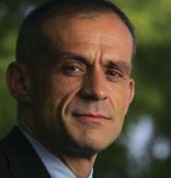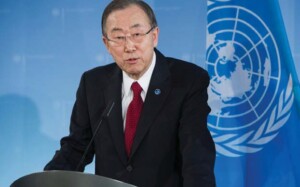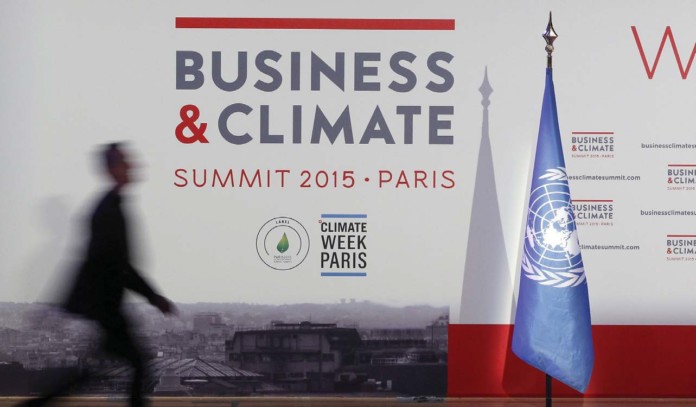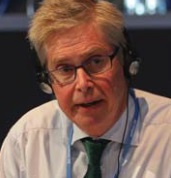The vibe and tenor of the language at the Business & Climate Summit, held in Paris mid May 2015, as a prelude to the mega Climate Change Summit in December, this year, gave the world a glimpse of more than 2,000 business leaders shedding their cloak of caution, inhibition and cynicism towards climate change. But they did insist that only clarity and continuity of governmental policies could help them sustain their guarded exuberance.
An unprecedented mobilization of 25 worldwide business networks representing over 6.5 million companies from more than 130 countries pledged to lead the global transition to a low-carbon, climate resilient economy.
This is a strong message by businesses to government leaders who will determine the fate of the planet when they meet in December. Now, with both business and religious leaders led by Pope Francis exerting strong pressure on political leaders, they will be pushed to take strong decisions followed by determined actions.
Highlights of The Summit
• Business calls on policymakers to leverage public funds and private sector finance towards low carbon assets
• Introduce carefully designed, robust and predictable carbon pricing; and to eliminate fossil fuel subsidies
• That businesses are ready to innovate and are preparing to accelerate the scale and pace of deployment towards low-carbon future
• Business believes the UN’s objectives are achievable and compatible with continued economic growth and human development if all actors work together
• The establishment of an alliance between business and governments leading to the integration of climate policies into the mainstream economy. This should include enhanced public-private dialogues at global and national level, backed by a commitment to raise ambition in line with developments in climate science.
• A call for policy makers to de-risk investment towards low-carbon assets, especially in developing countries
• Particular focus needs to be given to the developing world where funding mechanisms should be set up to fight poverty whilst leapfrogging towards a low-carbon development path.
Paul Polman, CEO of Unilever,said: “When faced with the challenges of climate change, businesses should be part of the solution. Companies that have seized low-carbon opportunities are increasingly seeing rewards. To go further, we need a strong international climate agreement that sends a clear and credible signal to businesses that low-carbon policies will endure.”

Jean-Pascal Tricoire, CEO and Chairman of Schneider Electric and Chairman of Global Compact France, said: “The difference between now and three years ago is that nobody in business really dares to say climate change is not happening. Companies have actually taken commitments on emissions reductions. With bold, clear and long-term climate policies to keep within the +2°C threshold, business will create growth, jobs and continuous innovation on the way to a prosperous low-carbon economy.”

Peter Bakker, President of the World Business Council for Sustainable Development, said: “Over 80 companies are now part of the Low Carbon Technology Partnerships initiative and more business leaders and investors are signing up every day to campaigns such as those led by We Mean Business to demonstrate their action on climate. The business world is scaling up action, fast.”
Mats Anderson, CEO of Swedish National Government Pension Fund, AP4, said: Putting a price on carbon is absolutely key: it will send the right signal to the market, the investors and the polluting companies. And at the same time it will reward the leaders who take climate change seriously. Last but not least, it will push more money into investments in renewables and green infrastructure.
It’s clear that companies want to work with governments to build a clean, predictable and transformative path toward a safe and profitable future. There’s big money to be made while doing so because trillions of dollars are needed to build the low-carbon, climate-resilient economies across the world.













